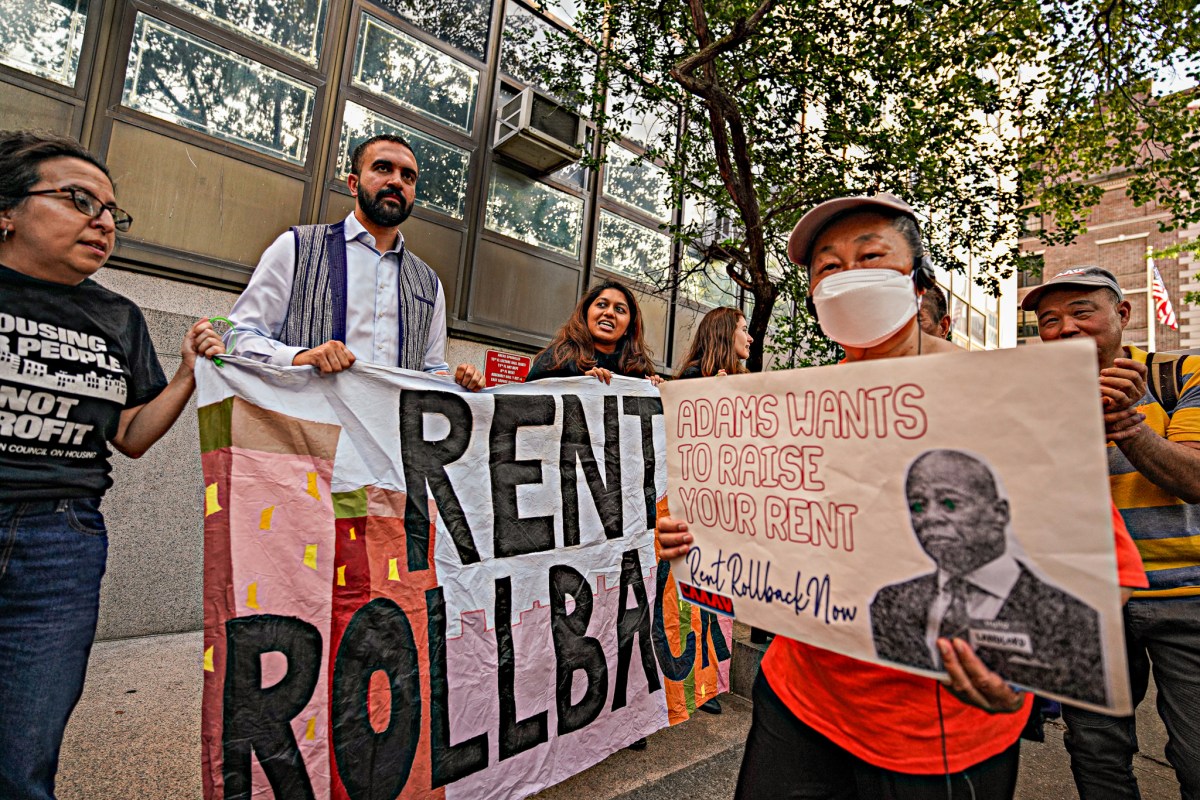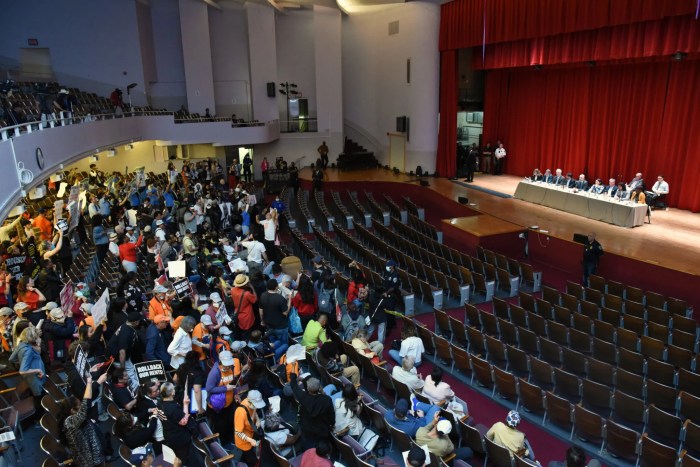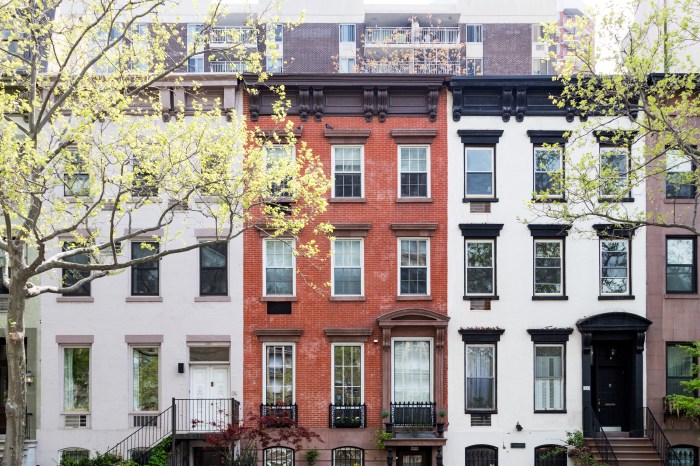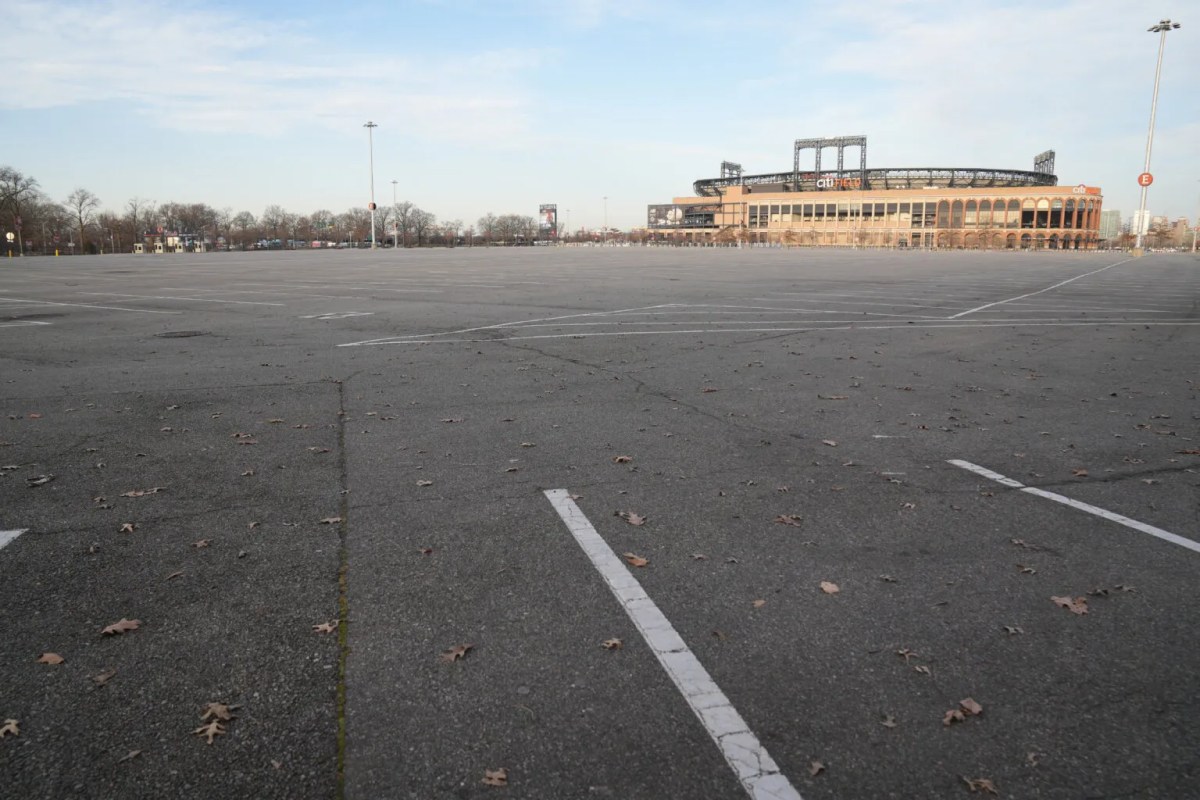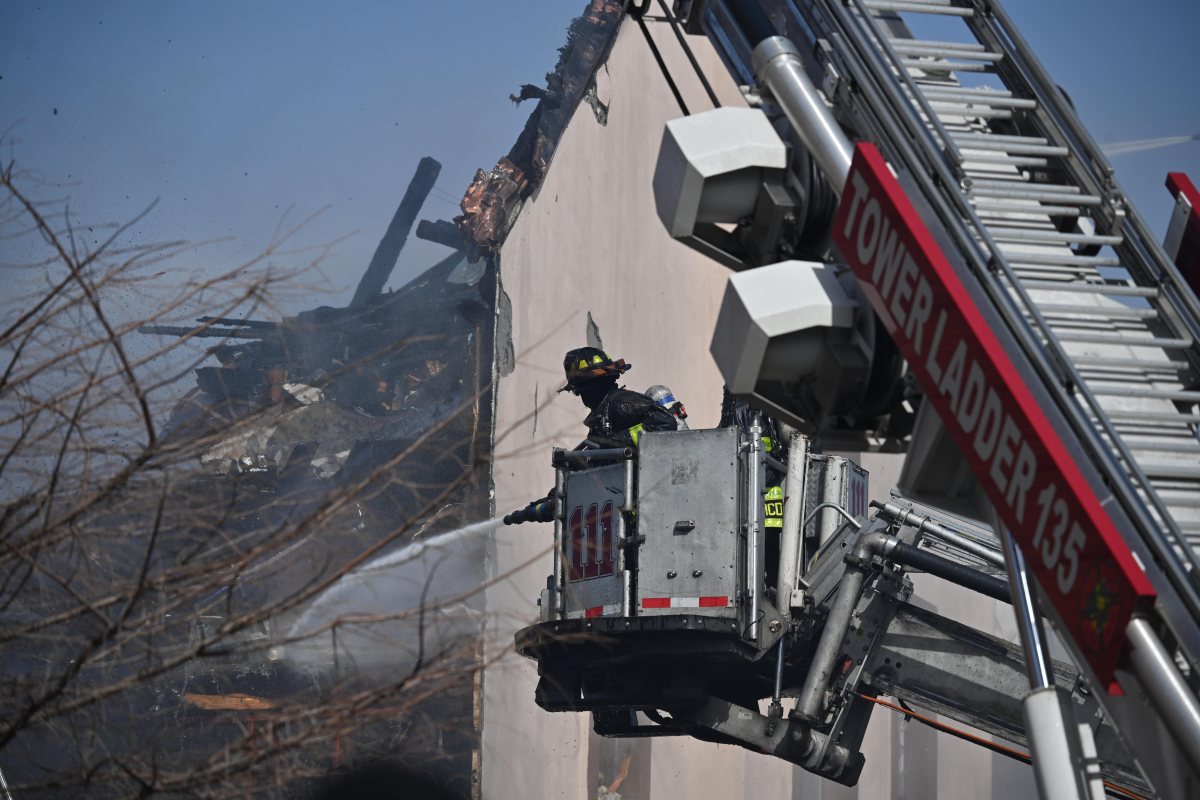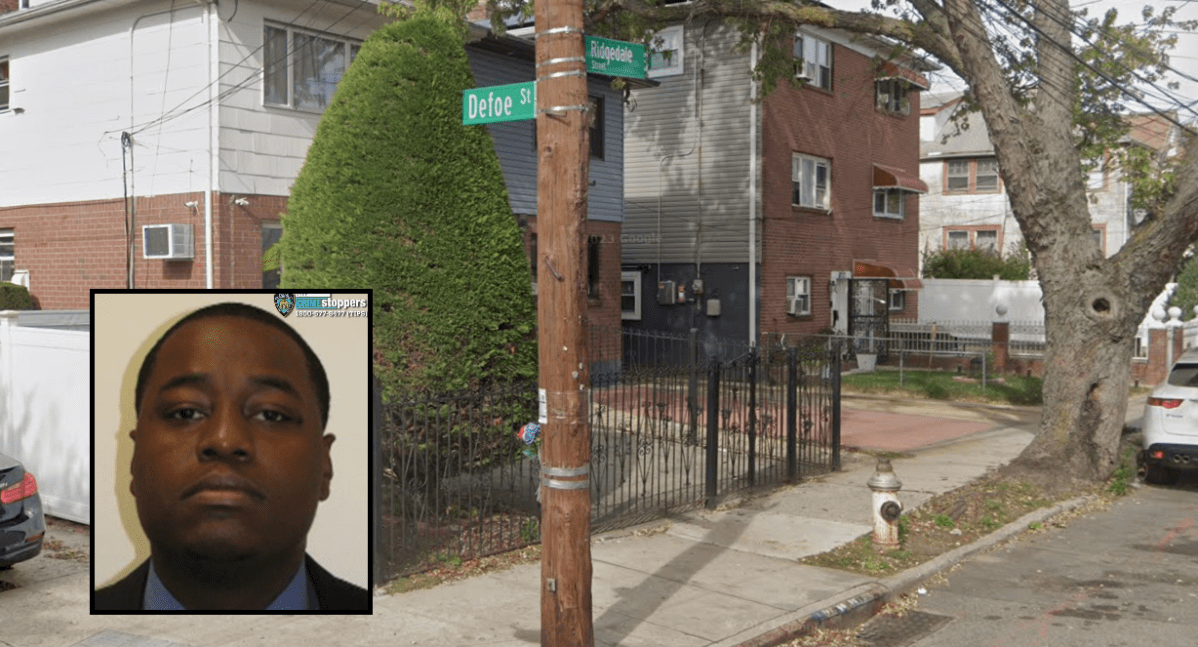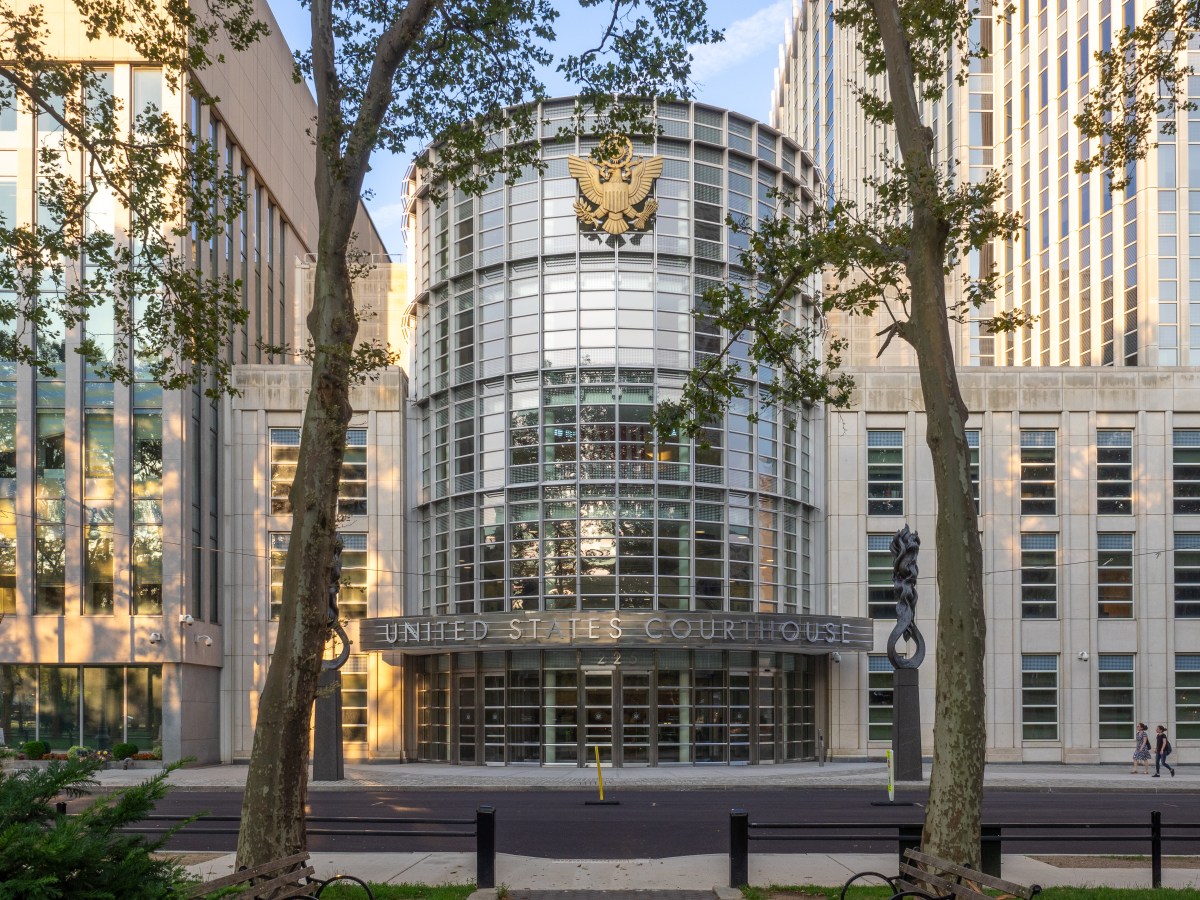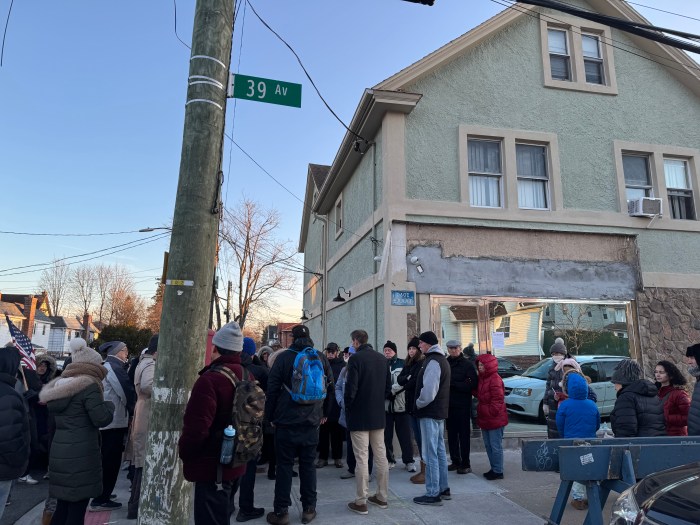The Rent Guidelines Board voted Monday night to increase the rent for more than 1 million rent-stabilized tenants in the face of infuriated advocates who protested the decision.
Hundreds took to the streets on the Upper East Side with dozens blocking the entrance to Hunter College where the board — a nine-member mix of tenant, owner and public representatives appointed by the mayor — voted 5-4 to approve a 2.75% increase for one-year leases and 5.25% for two-year leases.
The final decision, which was held during a brief public hearing on June 17, came weeks after after the board approved preliminary rent increase ranges of up to 6.5% during a separate vote in April. The increases will go into effect for leases issued or renewed in October 2024.

Attendees booed and jeered the board as Board Chair Nester Davidson announced the outcome of the vote. Outside the school, things were even more chaotic, as demonstrators held up signs and called out for a rent rollback.
Police were on site and detained several protestors, including Assembly Member Marcela Mitaynes (D-Brooklyn), who was arrested while blocking the entrance to the meeting. At one point, she was heard yelling that the handcuffs police slapped on her were too tight.
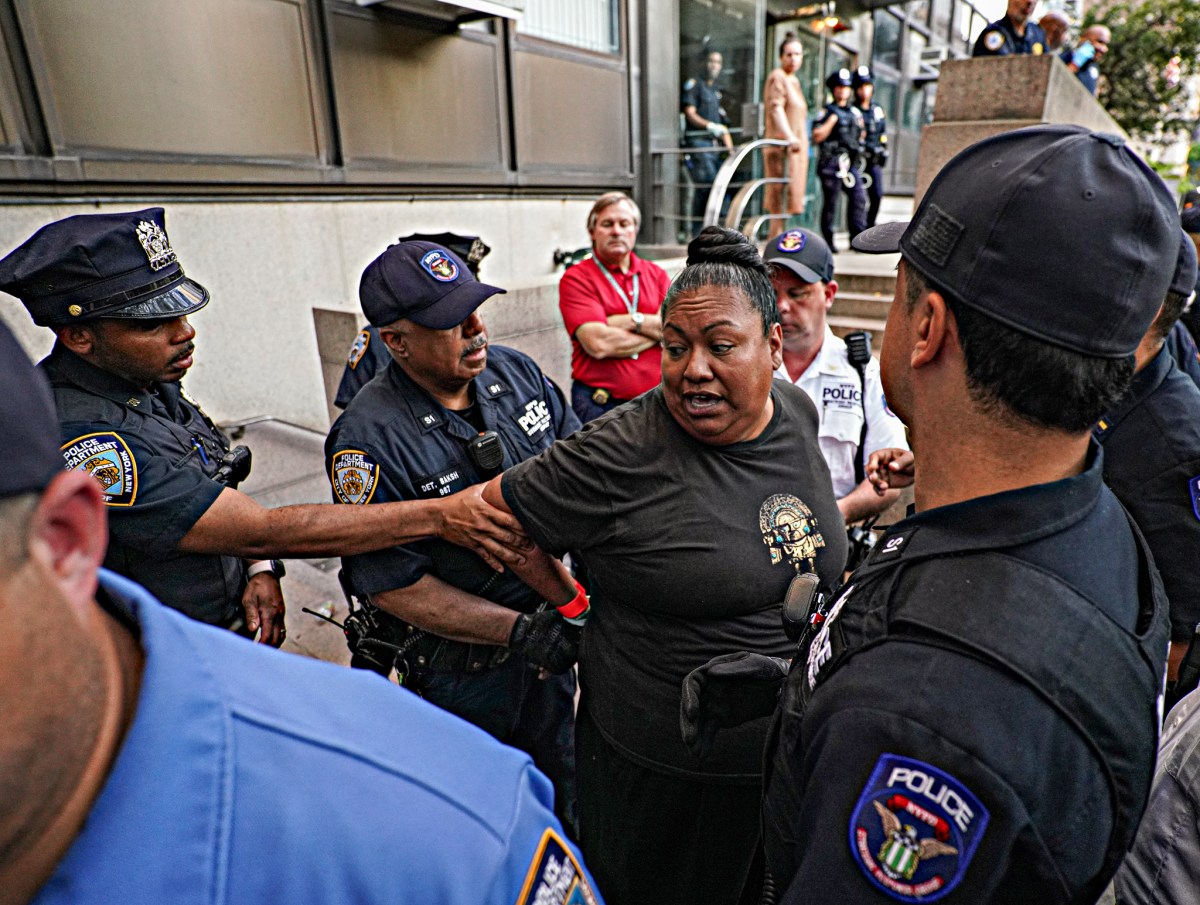
Tenant advocates had been urging the board for a rent rollback or at least a rent freeze — both of which were denied at Monday’s hearing.
Mayor Eric Adams issued a statement on the vote.
“Our volunteer Rent Guidelines Board members are charged with a vital but challenging task: protect tenants from unfair rent increases while also protecting the future of rent stabilized homes. The data reviewed by the board this year makes clear that our city’s tenants are facing a severe housing and affordability crisis, and that the quality of our city’s rent stabilized homes is threatened by growing operating and maintenance costs for owners,” the mayor said.
He added that the high end of the proposed rent increases would have been untenable.
“As we have said from day one, the only way to ultimately lower rents is to build more housing, and we are using every tool in the our toolkit to build that housing more quickly, cutting red tape, implementing the new state tools we fought hard to attain, financing record numbers of affordable housing, and advancing the ‘City of Yes for Housing Opportunity’ zoning amendment that will clear the way to build a little more housing across the city in every borough.”
An ‘unacceptable’ outcome for some
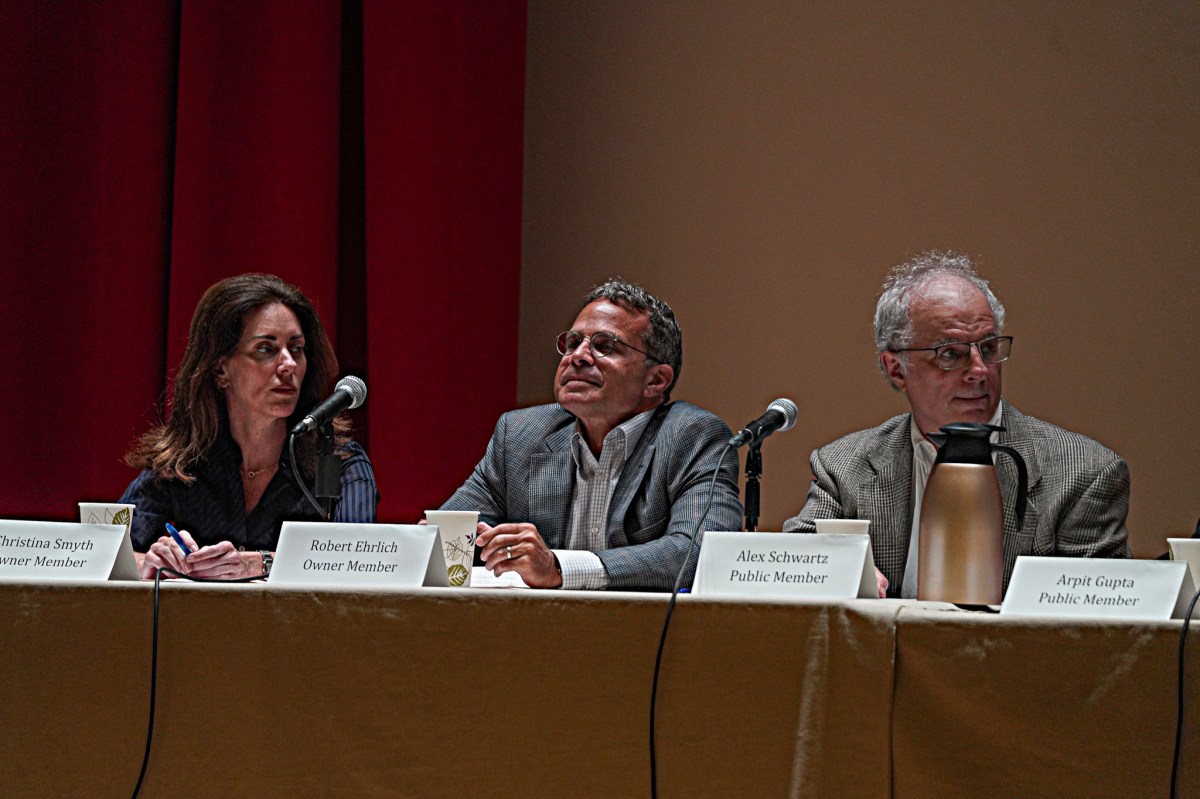
Adriene Holder, chief attorney of the Civil Practice at The Legal Aid Society, was more specific in how she felt about the vote, issuing a statement condemning the board on the outcome.
“Once again, the Rent Guidelines Board has voted to increase rents on stabilized units across the city, jeopardizing the housing stability of more than one million tenants,” she said. “These needless rent hikes for an already struggling population will undoubtedly lead to increased rates of homelessness, eviction, and displacement.”
Adan Soltren, a tenant member of the board who walked out of a public hearing in Manhattan recently, was appalled at the decision.
“Given the data both current and historical and the countless people – at least 25 electeds, thousands of tenants, numerous advocates, even the mayor this morning calling for a freeze – to vote for the increases you are going to vote for is unacceptable,” he said.
Manhattan Borough President Mark Levine (D-Manhattan) is one of these elected officials who has advocated for no increases for rent-regulated tenants. He said at a recent public hearing that another rent increase will put many tenants up against eviction.
“I am extremely concerned about the burdens facing working class and low-income families in NYC right now that are finding it harder and harder to make ends meet and nowhere is that burden greater than rent. And if we increase rents on tenants in this environment it will add significant pain to many families who would be at risk of eviction.
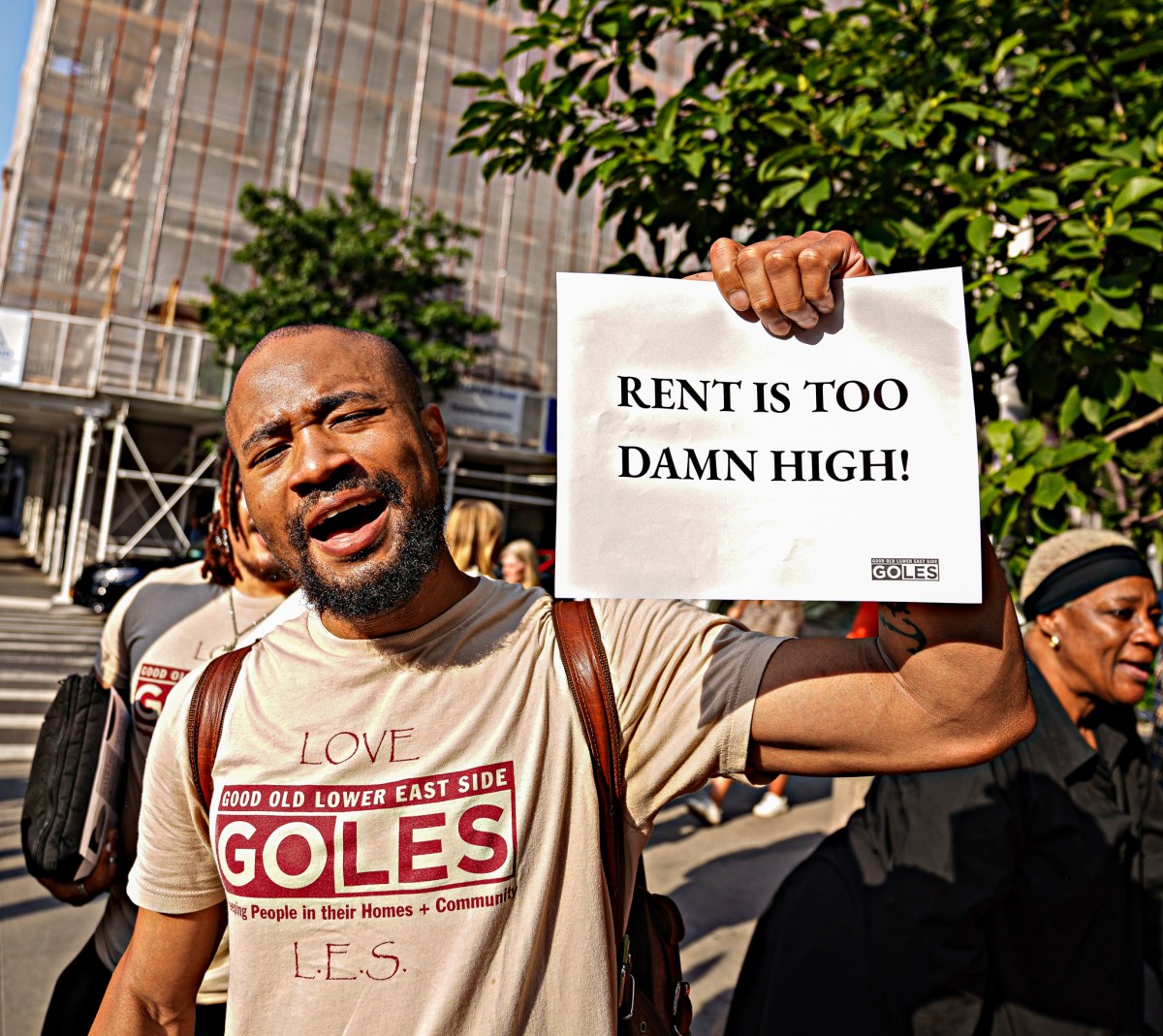
Average rents in Manhattan are at over $5,000 per month. Vacancy rates are at 1.4%.
But owner member Christina Smyth said landlords are struggling, too.
“Property taxes continue to increase, insurance costs are skyrocketing, utilities are going up double digits,” Smyth said. “Water and sewer costs are going up 8.5%. This board should be mitigating the long term damage that has already been done to the quality of affordable rent-stabilized housing. Advancing a rent adjustment in line with inflation is the bare minimum.
Read more: Man found shot in Bronx building amid gun violence surge.



